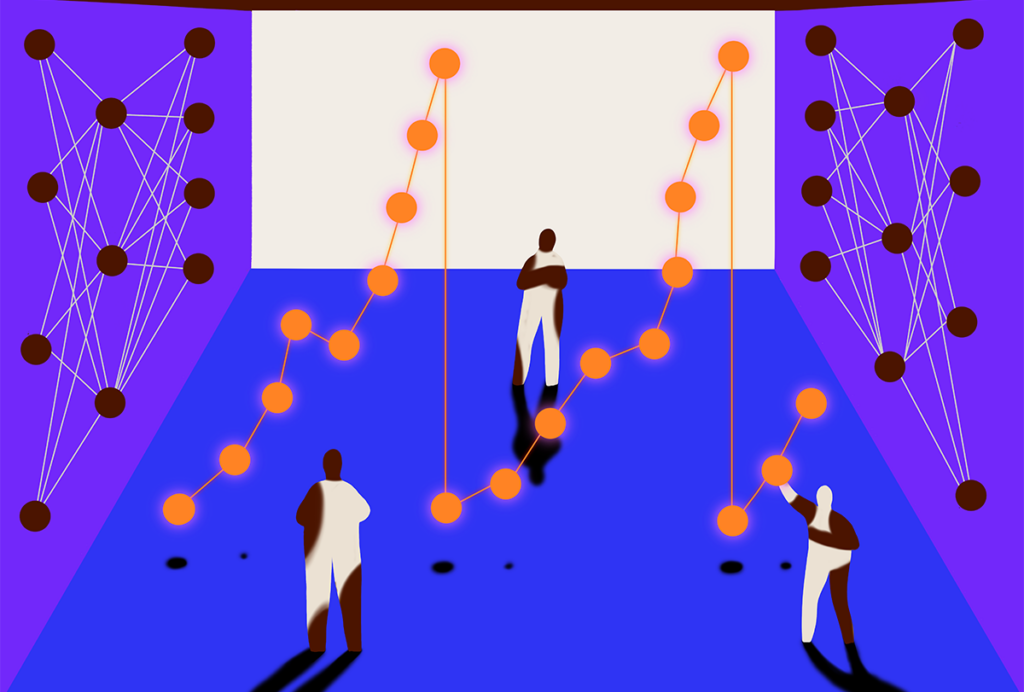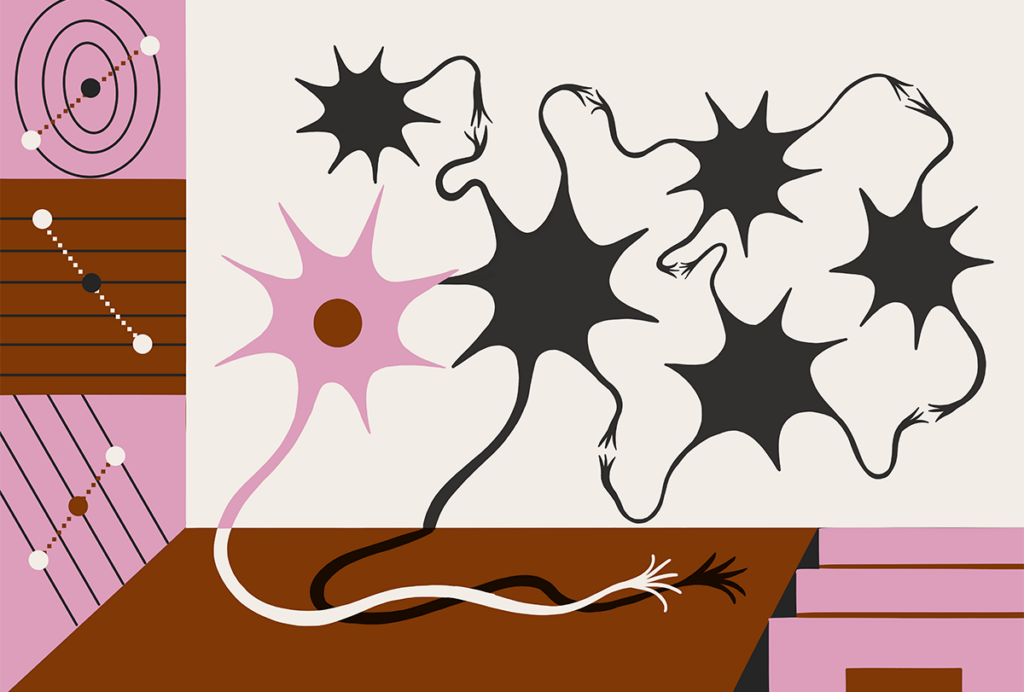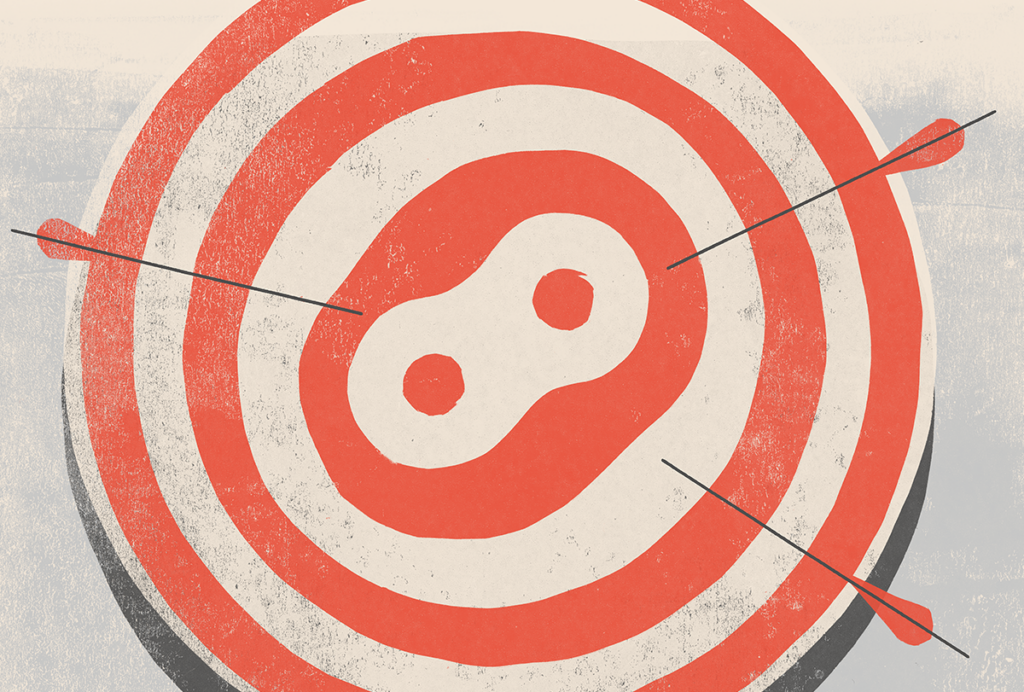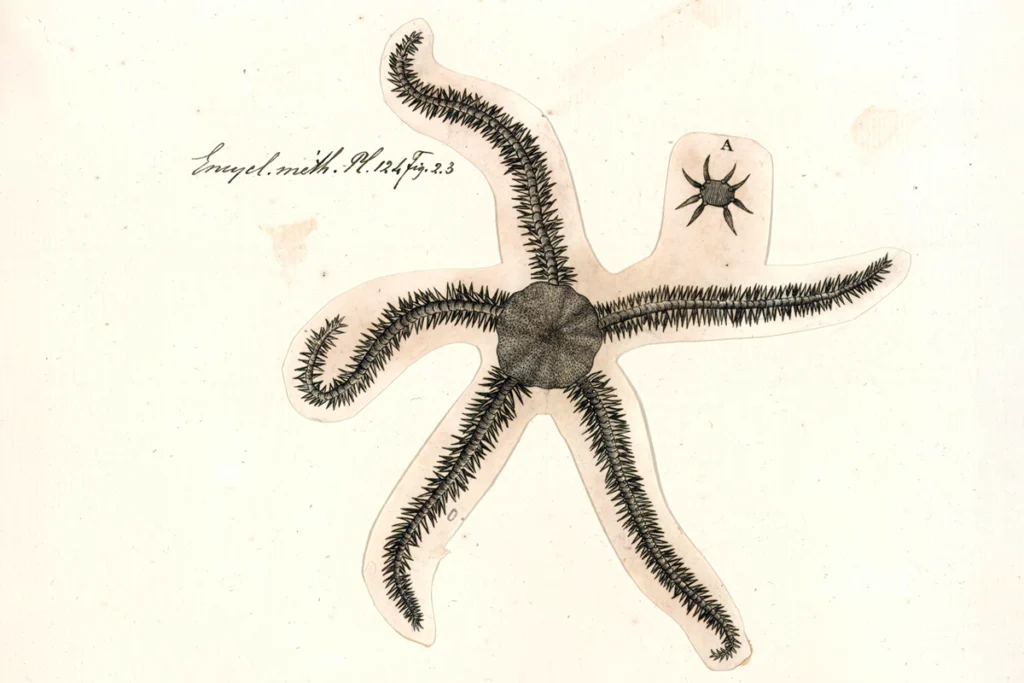Cognition
Recent articles
The best of ‘this paper changed my life’ in 2025
From a study that upended astrocyte research to one that reignited the field of spiking neural networks, experts weighed in on the papers that significantly shaped how they think about and approach neuroscience.

The best of ‘this paper changed my life’ in 2025
From a study that upended astrocyte research to one that reignited the field of spiking neural networks, experts weighed in on the papers that significantly shaped how they think about and approach neuroscience.
This paper changed my life: Nancy Padilla-Coreano on learning the value of population coding
The 2013 Nature paper by Mattia Rigotti and his colleagues revealed how mixed selectivity neurons—cells that are not selectively tuned to a stimulus—play a key role in cognition.

This paper changed my life: Nancy Padilla-Coreano on learning the value of population coding
The 2013 Nature paper by Mattia Rigotti and his colleagues revealed how mixed selectivity neurons—cells that are not selectively tuned to a stimulus—play a key role in cognition.
What should the field prioritize over the next 10 years?
Respondents pointed to a range of challenges in basic neuroscience—such as understanding naturalistic behaviors, intelligence and embodied cognition—and called for more circuit-level research, more precise brain recordings and more work in alternative models. Just as many pushed for a translational pivot.

What should the field prioritize over the next 10 years?
Respondents pointed to a range of challenges in basic neuroscience—such as understanding naturalistic behaviors, intelligence and embodied cognition—and called for more circuit-level research, more precise brain recordings and more work in alternative models. Just as many pushed for a translational pivot.
Nikolay Kukushkin discusses his book, ‘One Hand Clapping: Unraveling the Mystery of the Human Mind’
He explains how meaning arises in the interactions found throughout nature and evolution, from molecules to minds.
Nikolay Kukushkin discusses his book, ‘One Hand Clapping: Unraveling the Mystery of the Human Mind’
He explains how meaning arises in the interactions found throughout nature and evolution, from molecules to minds.
Michael Breakspear and Mac Shine explain how brain processing changes across neural population scales
Breakspear and Shine find a scale-free property of brain activity that is conserved across diverse species, suggesting that a universal principle of brain activity underlies cognition.
Michael Breakspear and Mac Shine explain how brain processing changes across neural population scales
Breakspear and Shine find a scale-free property of brain activity that is conserved across diverse species, suggesting that a universal principle of brain activity underlies cognition.
Single-neuron recordings are helping to unravel complexities of human cognition
As this work begins to bear fruit, researchers “are becoming less afraid to ask very difficult questions that you can uniquely ask in people.”

Single-neuron recordings are helping to unravel complexities of human cognition
As this work begins to bear fruit, researchers “are becoming less afraid to ask very difficult questions that you can uniquely ask in people.”
Say what? The Transmitter’s top quotes of 2024
“We’ve cured mouse-heimer’s thousands of times...”—find out who said this to a Transmitter reporter, and read our other favorite quotes from the past year.

Say what? The Transmitter’s top quotes of 2024
“We’ve cured mouse-heimer’s thousands of times...”—find out who said this to a Transmitter reporter, and read our other favorite quotes from the past year.
Martín Giurfa y la idea de hogar
El investigador de la cognición de insectos ha hecho su trabajo en varios continentes, pero Argentina nunca está lejos de su mente.

Martín Giurfa y la idea de hogar
El investigador de la cognición de insectos ha hecho su trabajo en varios continentes, pero Argentina nunca está lejos de su mente.
Martin Giurfa’s concept of home
The insect-cognition researcher has done his work across continents, but Argentina is never far from his mind.

Martin Giurfa’s concept of home
The insect-cognition researcher has done his work across continents, but Argentina is never far from his mind.
Cognition in brainless organisms is redefining what it means to learn
A slew of simple creatures demonstrate forms of learning, making the case for cognitive science to expand beyond the boundaries of the human mind.

Cognition in brainless organisms is redefining what it means to learn
A slew of simple creatures demonstrate forms of learning, making the case for cognitive science to expand beyond the boundaries of the human mind.
Explore more from The Transmitter
Astrocytes orchestrate oxytocin’s social effects in mice
The cells amplify oxytocin—and may be responsible for sex differences in social behavior, two preprints find.

Astrocytes orchestrate oxytocin’s social effects in mice
The cells amplify oxytocin—and may be responsible for sex differences in social behavior, two preprints find.
Neuro’s ark: Spying on the secret sensory world of ticks
Carola Städele, a self-proclaimed “tick magnet,” studies the arachnids’ sensory neurobiology—in other words, how these tiny parasites zero in on their next meal.

Neuro’s ark: Spying on the secret sensory world of ticks
Carola Städele, a self-proclaimed “tick magnet,” studies the arachnids’ sensory neurobiology—in other words, how these tiny parasites zero in on their next meal.
Autism in old age, and more
Here is a roundup of autism-related news and research spotted around the web for the week of 2 March.

Autism in old age, and more
Here is a roundup of autism-related news and research spotted around the web for the week of 2 March.